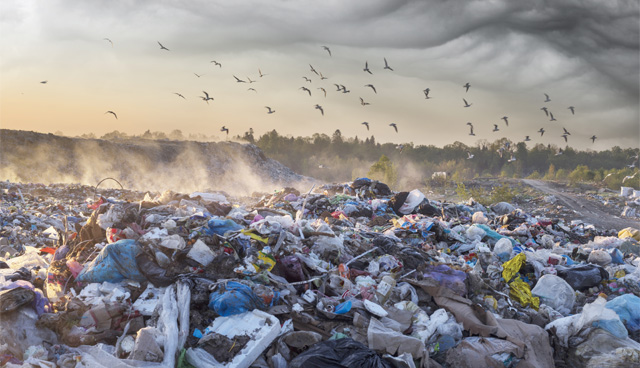New Waste Management Strategy to be delivered in 2023

Northern Ireland is to set a target to ensure that no more than 10 per cent of its waste goes to landfill by 2035.
As part of the Department of Agriculture, Environment and Rural Affairs (DAERA) draft Environment Strategy announced by Minister Edwin Poots MLA at the COP26 conference in Glasgow, a new Waste Management Strategy is set to be published in 2023, including the new landfill target.
Northern Ireland’s current Waste Management Strategy was put in place as a provisional measure in 2019 in anticipation of the development of a new Waste Management Strategy, because of the absence of functioning government at the time.
Northern Ireland has experienced a dramatic decline in levels of waste going to landfill, mostly due to an increase in recycling driven by a European Union Directive target and the Northern Ireland Landfill Allowance Scheme, a tax escalator which has created a strong incentive to divert waste from landfill.
Since 2010, local councils have reduced the amount of waste they send to landfill by about 40 per cent. Latest figures for municipal waste collected by councils show a recycling rate for household waste of 52 per cent and a landfill rate of 21.5 per cent (a fall from 70.9 per cent in 2006).
DAERA has said that in publishing its new Waste Management Strategy in 2023 it intends to bring forward all of the actions set out in its Waste Prevention Plan 2019, while also introducing legislation to reduce the consumption of single use plastic items and setting a target of bringing no more than 10 per cent of waste to landfill by 2035.
In addition, it will introduce a new UK-wide Extended Producer Responsibility Scheme for packaging and introduce a Deposit Return Scheme for Drink Containers in 2024/2025.
Setting out its future vision, the Department says it wants:
- a low carbon, resource efficient society in which resources are valued and reused, putting them back into the economy and waste is prevented;
- increased recycling rates with targets set to support this;
- changed consumer attitudes to reuse and repair and waste prevention;
- no biodegradable waste to landfill;
- increased food redistribution; and
- all in society aware of the problem of food waste and take active steps to reduce this.
Critical to the planned reduction in landfill rates in Northern Ireland will be the development of a circular economy. The Department for the Economy (DfE) is currently developing a Circular Economy Strategic Framework (CESF) for Northern Ireland, but the framework is set to be progressed with officials across all government departments, recognising the cross-cutting nature of the ambition.
A Northern Ireland Circularity Gap report is expected in 2021 before the publication of the Circular Economy Strategic Framework by 2022.





